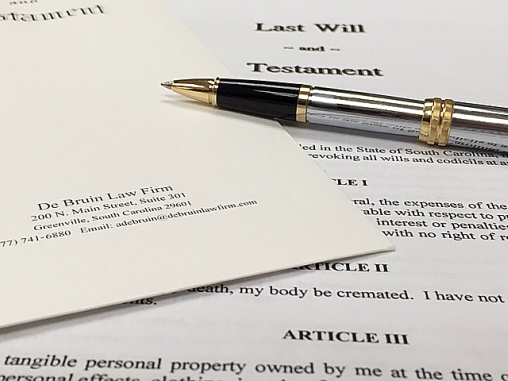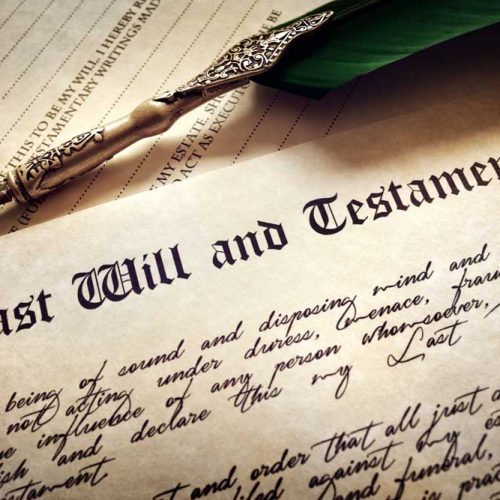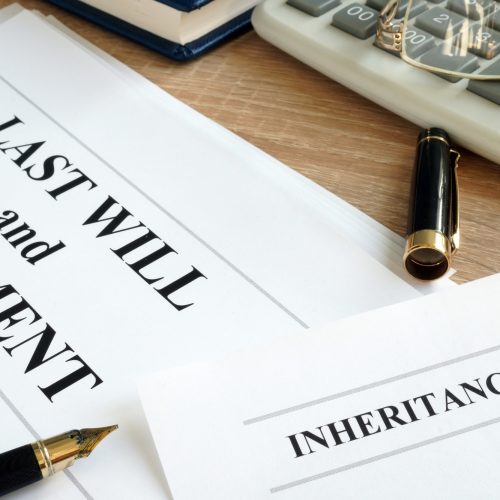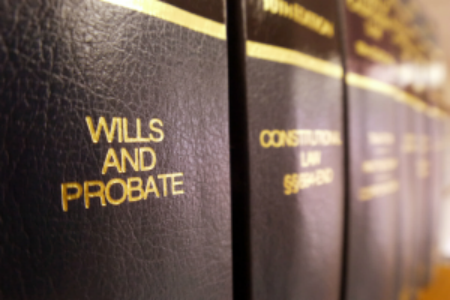South Carolina Probate Process Part 1
When an individual dies, typically, at least some of the property that individual owned will be subject to probate. This means that the property must go through a formal probate process to be distributed according to the individual’s will. Even if the individual did not have a will, that individual’s property may still pass through probate.
Understanding Probate in South Carolina
Probate is the legal process through which a deceased person’s assets are identified, gathered, debts are paid, and the remaining property is distributed to their heirs or beneficiaries. It is a necessary step to ensure the orderly transfer of wealth and to validate the will, if one exists. In South Carolina, like many other states, the probate court oversees this process, ensuring that the deceased’s wishes are honored and that all legal requirements are met. While the concept might seem straightforward, the actual process can be complex, involving numerous legal procedures and strict timelines.
What Property is Subject to Probate in South Carolina?
In South Carolina, a wide array of assets can be subject to probate. This typically includes any property owned solely by the deceased at the time of their death that does not have a designated beneficiary or a joint owner with rights of survivorship.
Common examples include:
- Land, houses, and other real estate held in the individual’s name alone.
- Vehicles, such as cars, boats, and motorcycles, also fall under this category if they were solely owned.
- Personal effects, like antiques, jewelry, art, and other valuable collectibles, are also part of the probate estate.
- Financial assets are frequently subject to probate, including stocks, bonds, mutual funds, and bank accounts (checking, savings, CDs) that do not have “payable on death” (POD) or “transfer on death” (TOD) designations or joint ownership.
Unless all of the individual’s property was meticulously placed into a revocable living trust, or otherwise structured to avoid probate, the estate will almost certainly need to go through the probate process to legally transfer ownership to the rightful heirs.
What Property Is Exempt from Probate?
While many assets are subject to probate, it’s equally important to understand what property is typically exempt from this process. Assets that pass directly to a named beneficiary or joint owner generally bypass probate. This includes life insurance policies and retirement accounts (like 401(k)s, IRAs) where a beneficiary has been explicitly named.
Upon the death of the account holder, these funds are paid directly to the designated individual without court intervention. Similarly, property held in joint tenancy with right of survivorship, such as a joint bank account or real estate owned by two or more people where the surviving owner automatically inherits the deceased’s share, avoids probate.
Assets held within a properly funded revocable living trust are also exempt because the trust, not the individual, legally owns the assets. These non-probate assets can significantly streamline the estate settlement process and provide immediate access to funds for surviving family members, highlighting the importance of proper estate planning.
What is the Role of the Executor in South Carolina?
The executor plays a pivotal role in the probate process, acting as the personal representative of the deceased’s estate. This individual is typically named in the will, but if no executor is designated or if the named executor is unable or unwilling to serve, the probate court may appoint one.
The executor’s responsibilities are extensive and legally binding, requiring diligence and careful attention to detail. Their primary duty is to ensure that the deceased’s final wishes, as expressed in their will, are carried out, or if there is no will, that the estate is distributed according to South Carolina’s intestacy laws. This role involves significant legal and financial responsibilities, making it crucial for the chosen individual to be trustworthy and capable of managing complex administrative tasks. The executor is accountable to the court and the beneficiaries, and any missteps can lead to legal complications.
Initial Steps for the Executor
The first crucial step for the individual named as executor is to meet with the clerk of the probate court in the county where the deceased resided. This initial meeting formally begins the probate process. During this meeting, the executor must present several vital documents. An original copy of the deceased’s will, if one exists, is paramount, as it outlines the deceased’s wishes regarding their property distribution.
The death certificate is also a mandatory document, serving as official proof of death. Additionally, the executor must provide comprehensive contact information for all known relatives and heirs, as they are interested parties in the estate and must be notified of the probate proceedings. This initial filing allows the court to formally recognize the executor’s authority and initiate the legal framework for administering the estate. Without these foundational documents, the probate process cannot proceed.
Safeguarding Estate Assets in South Carolina
Once the court has officially appointed the executor, a critical responsibility is to ensure that all of the assets within the estate are identified, noted, and meticulously safeguarded. This step is vital to prevent loss, theft, or unauthorized access to the deceased’s property during the probate period.
For instance, if the estate includes multiple bank accounts, the executor must take immediate steps to ensure that no unauthorized withdrawals are made from these accounts until the probate process is complete and the assets can be legally distributed. This might involve notifying financial institutions of the account holder’s death and requesting that the accounts be frozen or transferred into an estate account.
Similarly, physical assets like real estate, vehicles, and valuable personal property must be secured. This could mean changing locks on properties, ensuring vehicles are stored safely, and inventorying valuable items to prevent their disappearance. The executor is legally obligated to protect the estate’s value for the benefit of the heirs and creditors.
Locating All Assets
One of the most challenging tasks for an executor can be locating all of the deceased’s assets. If the deceased maintained thorough and organized records, the executor is indeed fortunate, as these records may clearly list all accounts, investments, and pieces of property owned. However, this is often not the case.
A good starting point when records are scarce is to obtain a credit report for the deceased. This report can reveal open bank accounts, lines of credit, credit cards, and other financial relationships that might indicate hidden assets. Next, a careful review of the deceased’s past tax returns can be highly illuminating. Tax returns often show receipts of interest, capital gains from investments, dividends from stocks, rental income, or business income, all of which can point to specific financial accounts or properties.
If, after these steps, there is still uncertainty about whether all assets have been located, or if the estate is particularly complex, hiring a private investigator may be a necessary measure to conduct a more thorough and comprehensive search. This can uncover assets that were not immediately apparent from standard financial documents.
Unclaimed Property Search in South Carolina
Beyond personal records and financial statements, South Carolina offers an additional valuable resource for locating potential assets: the “Unclaimed Property Search” available on the state treasurer’s website (www.treasurer.sc.gov). This program serves as a central repository for funds and property that companies or other agencies have been unable to return to their rightful owners.
This can include forgotten bank accounts, uncashed checks, dormant safe deposit box contents, utility deposits, insurance proceeds, and even stock dividends. When these entities cannot locate the owner, they are legally required to report and remit the unclaimed property to the state’s unclaimed property program. It is a straightforward process to conduct a search on the website using the deceased’s name, and it is a crucial step for any executor to perform, as it can uncover significant assets that might otherwise remain undiscovered and undistributed to the heirs.
Identifying Debts and Liabilities
Just as important as locating assets is the executor’s responsibility to identify any debts or liabilities the deceased had at the time of death. This can be equally, if not more, difficult than finding assets, as creditors may not be immediately known. South Carolina law provides a specific procedure for notifying potential creditors.
The executor is required to publish a notice in a local newspaper once a week for three consecutive weeks, formally announcing the death and inviting creditors to file claims against the estate. If the executor is already aware of specific creditors, such as mortgage lenders, credit card companies, or medical providers, they may also send direct written notices to these debtors.
Creditors who receive direct notice have 60 days from the date they receive the notice to file a formal claim with the estate. For creditors unknown to the executor, or those who did not receive direct notice, they have a longer period of 8 months from the date of the first newspaper publication to file their claims. This structured notification process ensures that all legitimate debts are identified before assets are distributed.
Valuing Estate Assets
Once all assets have been located, the executor is responsible for determining their fair market value as of the date of the deceased’s death. This valuation is crucial for several reasons: it helps in calculating any potential estate taxes, ensures equitable distribution among heirs, and provides a clear accounting for the probate court.
Different types of assets require different valuation methods. For real estate, a professional appraisal is typically necessary to determine its market value. Stocks and bonds are valued based on their trading prices on the date of death or an alternative valuation date if elected. Bank accounts are straightforward, reflecting the balance on the date of death. Personal property, especially valuable items like antiques, jewelry, or collectibles, may require appraisals from specialists. Accurately valuing all assets is a significant undertaking that ensures transparency and compliance with legal and tax requirements throughout the probate process.
Paying Debts and Taxes in South Carolina
After all assets have been identified and valued, and all legitimate claims from creditors have been received and verified, the executor’s next critical duty is to pay all outstanding debts and taxes of the deceased. This step must be handled with extreme care, as there is a specific order of priority for payments under South Carolina law.
Generally, administrative expenses of the estate (like court fees, attorney fees, and executor commissions) are paid first, followed by funeral expenses, then certain government claims (like taxes), and finally, other secured and unsecured debts. It is imperative that all legitimate debts are satisfied before any distributions are made to beneficiaries, as the executor can be held personally liable if assets are distributed prematurely and then debts cannot be paid.
This phase also involves addressing any federal estate taxes (though most estates do not meet the federal threshold) and the deceased’s final income taxes. Proper accounting and record-keeping during this stage are essential for a smooth probate closing.
Distribution of Assets in SC
With all debts and taxes paid, the executor can finally proceed with the distribution of the remaining assets to the rightful heirs or beneficiaries. If the deceased left a valid will, the executor must strictly adhere to its instructions, distributing specific bequests to named individuals and dividing the residuary estate as directed. If there is no will, the estate is distributed according to South Carolina’s laws of intestacy.
These laws dictate how property is divided among surviving spouses, children, parents, and other relatives based on a predetermined hierarchy. The executor will prepare a final accounting, detailing all assets, income, expenses, and proposed distributions. This accounting is typically presented to the court and to the beneficiaries for approval. Once approved, the executor will transfer ownership of assets, such as deeding real estate, transferring stock certificates, and distributing cash, formally concluding the distribution phase.
Closing the Estate
The final stage of the probate process is closing the estate. Once all assets have been collected, all debts and taxes paid, and all distributions made to beneficiaries, the executor must file a final accounting with the probate court. This accounting provides a comprehensive summary of all financial transactions that occurred during the administration of the estate, demonstrating that the executor has fulfilled all their duties according to the law and the will (if applicable).
The court will review this final accounting to ensure everything is in order. Upon approval, the executor will typically be formally discharged from their duties, releasing them from further responsibility for the estate. This official closing signifies the completion of the probate process, allowing the estate to be fully settled and all legal obligations to be met.
If you need assistance with the probate process, contact our attorneys
At the De Bruin Law Firm, our estate attorneys understand how difficult it is to manage an estate while grieving the loss of a loved one. We are here to provide the guidance you need through each step of the probate process.
The attorneys at the De Bruin Law Firm understand that estate matters are emotional and stressful. We are available to provide objective advice and guidance to our clients. To schedule a free consultation, call 864-982-5930 or use the link below.
ESTATE PLANNING LAW SERVICES
If you have a legal matter related to Estate Planning, Business Law, or a Real Estate Transaction contact our office to speak to one of our attorneys.
Our Attorneys
Estate Planning and Criminal Defense
Aaron De Bruin, Esq.
Estate Planning and Business Law
Gary De Bruin, Esq.
De Bruin Law Firm
Helping you plan. Helping you prepare. Helping you Protect.
The attorneys at the De Bruin Law Firm understand that Estate Matters can be difficult to understand and plan for. We are available to provide our clients advice and guidance during the Estate Planning Process. To view common fees associated with an Estate Plan please call us at 864-982-5930 or use the link below to view some of our common Estate Planning Fees.













